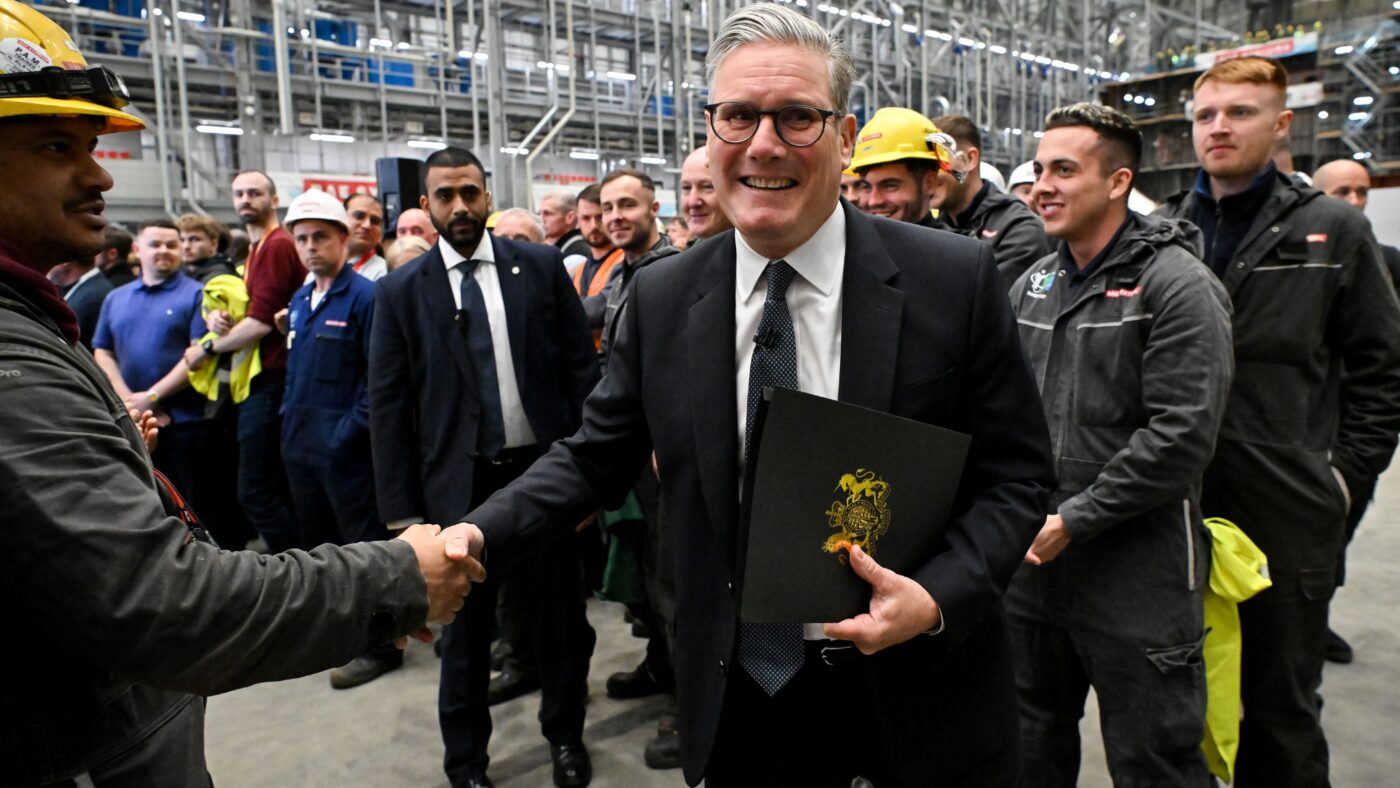The Strategic Defence Review has finally been published. It is rumoured to be two or three months since the independent reviewers, led by former defence secretary Lord Robertson of Port Ellen, delivered a final draft to the Ministry of Defence, and the wrangling continues within Whitehall over how much money the Government intends to spend on implementing its recommendations.
A weekend blitz of media announcements has left the Defence Secretary, John Healey, moving from ‘no doubt’ that spending would reach 3% of GDP by 2034 to scaling that back to an ‘ambition’. The Prime Minister, meanwhile, peevishly told the BBC that he was ‘not going to indulge in the fantasy of plucking dates from the air’ when it came to increasing the military budget. Presentationally, it has been a messy and confused start.
Often I react to Keir Starmer’s flailing media struggles as Oscar Wilde did to the death of Little Nell in ‘The Old Curiosity Shop’: you would need a heart of stone not to laugh. On defence spending, however, it is possible to find a sliver of sympathy for the Prime Minister, if only because he has faced hubris and nemesis in such short order, and now faces the prospect of looking unambitious and out of date. For a politician, these make for a dreadful fate.
In February, perhaps realising the inevitable a little later than most, Starmer announced that from April 2027, the UK would increase its level of defence spending from 2.3% of GDP to 2.5%. It may seem like modest growth, and on the wrong side of the decimal point, but it still represents tens of billions of pounds; and the Prime Minister took the decision at some political cost, as he raided the overseas aid budget to pay for the increase.
The new commitment of 2.5% came with a caveat-burdened ‘ambition’ to go further and spend 3% at some point ‘in the next parliament, as economic and fiscal conditions allow’. Starmer must reasonably have felt that he was putting the UK on the front foot: already in the top third of Nato countries in terms of defence spending, we were now taking another step forward. It was also intended to signal to Donald Trump’s administration, narrow-eyed and suspicious of European countries failing to pull their weight, that Britain understood the new political reality and grasped that it had to do more.
Harold Wilson once famously remarked that a week was a long time in politics. Three months, then, is an aeon, and Starmer now runs the risk of looking left behind. Poland, conscious of sharing a land border with the Russian exclave of Kaliningrad Oblast, is almost doubling its defence expenditure: having spent 2.7% of GDP in 2022, it now expects to reach 4.7% this year. Germany’s new chancellor, Friedrich Merz, hustled a last-gasp constitutional amendment through the outgoing Bundestag in March to lift the so-called ‘debt brake’ and allow his government to borrow hundreds of billions of Euros to rearm and restore the country’s military capabilities. Meanwhile, President Emmanuel Macron has said publicly that he wants to increase France’s expenditure to 3.5%.
These are no longer outliers. At the annual meeting of the Nato Parliamentary Assembly last month in Dayton, Ohio, the alliance’s Secretary General, Mark Rutte, told the media almost casually that he ‘assumed’ member states would agree a new minimum target of 5% of GDP by 2032 at the Nato summit in The Hague later this month.
In only a few months, therefore, the UK has gone from being proactive and in the front rank of Nato members in terms of defence expenditure, to having committed to a level which is exactly half what the whole alliance is likely to agree to work towards. Even Starmer’s ‘ambition’ of spending 3% by 2034 looks cautious and modest as well as slow; meanwhile, the so-called fiscal rules by which the Chancellor of the Exchequer, Rachel Reeves, has placed so much store make it virtually impossible for the government to follow Germany’s example and borrow substantial amounts to fund more spending on defence.
Self-evidently, this change in circumstances undermines Starmer’s ambition to be a leader in European defence and security. The UK may be one of only two nuclear powers in Europe, but the Prime Minister cannot expect to wield significant influence if the UK falls far behind its neighbours in terms of its financial commitment. It also casts doubt on our ability to act as a ‘bridge’ between the United States and Europe: what special right of audience can we claim?
Starmer has been wrongfooted by that perennial threat to premiers of ‘events, dear boy, events’. What matters now is how he reacts. The weekend’s confusion over ‘ambition’ versus ‘certainty’ has not reflected well on the Government, but it may be that the Nato summit serves to underline what in fact we all knew from the beginning: that spending 2.5% of GDP on defence was a welcome move, but it is not enough. The ball is in the Government’s court.
Click here to subscribe to our daily briefing – the best pieces from CapX and across the web.
CapX depends on the generosity of its readers. If you value what we do, please consider making a donation.


